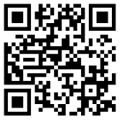我们导读:根据美国亚利桑那大学的微生物学家查尔斯.葛巴的最新研究,在马桶圈上吃午饭比在办公桌上吃更加安全。当然,他建议你不要在这两个地方中的任何一个地方进餐,而是要定期的洗手和进行表面消毒。定期使用消毒纸巾进行表面消毒的做法已被证实可以减少雇员30%的病假以及学童的超过50%的病假。办公桌上细菌最多的地方是台式机的键盘和鼠标以及手机。而被发现有害细菌和病毒最高的职业是:
1. 中小学教师
2. 银行家
3. 会计师
4. 传媒工作者
5. 医生
原文报道:
According to the germ-busting microbiologist, Charles Gerba of the University of Arizona, you're safer to eat your lunch off a toilet seat than the average office desk. He advises not to eat in either place and to regularly sanitize hands and disinfect surfaces.
Gerba has been brought to New Zealand by a cleaning company to advise employers on simple steps to reduce staff sick days, reported the New Zealand Herald. Regularly sanitizing surfaces with disinfecting wipes has been shown to reduce sick days of office workers by up to 30 percent and of schoolchildren by more than 50 percent.
Gerba's research found that dishcloths at home typically harbor more E. coli bacteria than the toilet. "There are more fecal bacteria in your kitchen sink than in your toilet after you flush it. People nuke their bathrooms, but not their kitchens," he said.
"There are 200 times more E. coli on the cutting board than on a toilet seat. It's safer to make a sandwich on a toilet seat than on a cutting board in the average home." Many home cooks fail to properly sanitize the board after cutting up raw meat, or do not have separate boards for raw meat and ready-to-eat foods.
In the office, the "germiest" items are the phone and the desk top followed by the computer keyboard and mouse. The number of bacteria per square centimeter on a desk top is typically 400 times greater than on a toilet seat.
Gerba said schools and daycare centers were the most unhygienic workplaces in his research, because children were less likely than adults to wash their hands and they picked up lots of germs from playgrounds.
Germs are easily transferred from our hands into our noses, mouths, and eyes because children on average touch their faces 80 times an hour and adults 16 times an hour.
He urged frequent use of hand sanitizer and regularly cleaning desks, phones, keyboards, and computer mice with disinfectant wipes.
Least Hygienic Workplaces
The highest concentrations of harmful bacteria and viruses were found on surfaces used by:
1. Schoolteachers
2. Bankers
3. Accountants
4. Media workers
5. Doctors
1. 中小学教师
2. 银行家
3. 会计师
4. 传媒工作者
5. 医生
原文报道:
More Safe to Eat off Toilet Seat than Office Desk
by Alexa Nemeth | Jul 22, 2010According to the germ-busting microbiologist, Charles Gerba of the University of Arizona, you're safer to eat your lunch off a toilet seat than the average office desk. He advises not to eat in either place and to regularly sanitize hands and disinfect surfaces.
Gerba has been brought to New Zealand by a cleaning company to advise employers on simple steps to reduce staff sick days, reported the New Zealand Herald. Regularly sanitizing surfaces with disinfecting wipes has been shown to reduce sick days of office workers by up to 30 percent and of schoolchildren by more than 50 percent.
Gerba's research found that dishcloths at home typically harbor more E. coli bacteria than the toilet. "There are more fecal bacteria in your kitchen sink than in your toilet after you flush it. People nuke their bathrooms, but not their kitchens," he said.
"There are 200 times more E. coli on the cutting board than on a toilet seat. It's safer to make a sandwich on a toilet seat than on a cutting board in the average home." Many home cooks fail to properly sanitize the board after cutting up raw meat, or do not have separate boards for raw meat and ready-to-eat foods.
In the office, the "germiest" items are the phone and the desk top followed by the computer keyboard and mouse. The number of bacteria per square centimeter on a desk top is typically 400 times greater than on a toilet seat.
Gerba said schools and daycare centers were the most unhygienic workplaces in his research, because children were less likely than adults to wash their hands and they picked up lots of germs from playgrounds.
Germs are easily transferred from our hands into our noses, mouths, and eyes because children on average touch their faces 80 times an hour and adults 16 times an hour.
He urged frequent use of hand sanitizer and regularly cleaning desks, phones, keyboards, and computer mice with disinfectant wipes.
Least Hygienic Workplaces
The highest concentrations of harmful bacteria and viruses were found on surfaces used by:
1. Schoolteachers
2. Bankers
3. Accountants
4. Media workers
5. Doctors



